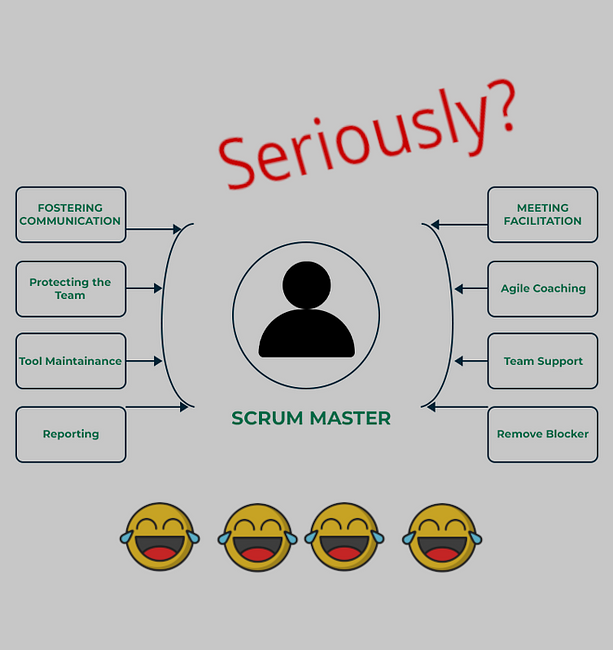
Shorts
Sunday, June 08, 2025
The Scrum Master is a project manager with a bit less responsibility and one-third of the salary.
I believe that, in fact, the transition from the Waterfall model to Agile has brought many improvements in software development, such as giving teams a bit more autonomy and introducing a person who knows well what needs to be done daily. Even though, for me, Agile is just Waterfall broken into pieces (the events), and you can plan a project using rolling wave planning.
However, since the beginning of Scrum, one role has remained uncertain in the division of activities: that of the Scrum Master. Let me explain:
- The team self-organizes.
- The team chooses, along with the Product Owner (at least in theory), what will be delivered and what won't.
- The Product Owner decides which activities are most important to deliver in a given period.
And what is left for the Scrum Master? I imagine the conversation between Sutherland and Schwaber on what to include as activities for a Scrum Master:
- The Scrum Master will ensure and reinforce Scrum for all team members.
- I agree.
- But... isn't that too little to do for 8 hours a day, 5 days a week?
- Hum... you're right.
- What can we assign to the Scrum Master? It seems all activities are assigned to the team or the Product Owner.
- I don't know, maybe the reports?
- No! We use the burndown by default, and that seems sufficient.
- Organizing meeting invitations?
- No! The events already exist, and there's no need to create more.
- I got it! Let's say the Scrum Master should remove barriers when the team has problems.
- Considering that a User Story will be in the sprint only if everyone understands it and there are no barriers, there won’t be much to do.
- Yes, but at least there’s something to do and say.
- Okay, agreed.
I don’t know if this was the conversation, but I wouldn’t be surprised if it was. In the end, it doesn’t seem like a Scrum Master does much.
But since the market isn’t stupid, it has deduced that the natural path for former project managers is to become Scrum Masters. Simply because a good project manager removes barriers and difficulties that their team encounters.
However, a project manager did much more, such as assessing risks, managing stakeholders, scope, delivery times, and communications. I have even seen Scrum Masters managing project costs, quality, and contracts.
Practically a project manager... and this hasn’t gone unnoticed by the market. But from my point of view, the opportunity the market saw to assign the activities of a project manager to a Scrum Master brings more problems compared to using a real project manager. Here are a few reasons:
- A Scrum Master, in most cases, hasn’t studied the marginal issues of project management, such as stakeholder management, communications, or costs.
- Generally, the Scrum Master isn’t responsible for the project costs. Another manager is, and this almost always leads to higher expenses.
- If the manager responsible for the costs intervenes, they won’t know what to do because they don’t know the team’s day-to-day activities.
- There will be issues forcing a “by the book” Scrum Master to do the activities of a Project Manager, and this will be the beginning of a relationship with a dissatisfied employee.
- Since the Scrum Master has fewer designated activities (in theory), they will only receive a portion of the salary that the project manager received. But the reality is that the person becomes overloaded, and this is also the beginning of a relationship with a dissatisfied employee.
And finally, we have deliveries almost without control, the reports presented to executives say almost nothing, and we have professionals who now either don't perform their duties (those imposed by the market) because they don't know how to, or they don't do them because they are dissatisfied with earning half or 30% of what they earned in the past.
And you, what do you think? Have you experienced situations similar to those described above? Like this "short," comment on LinkedIn, or share it on your social networks.
See you soon!
Erik Scaranello



